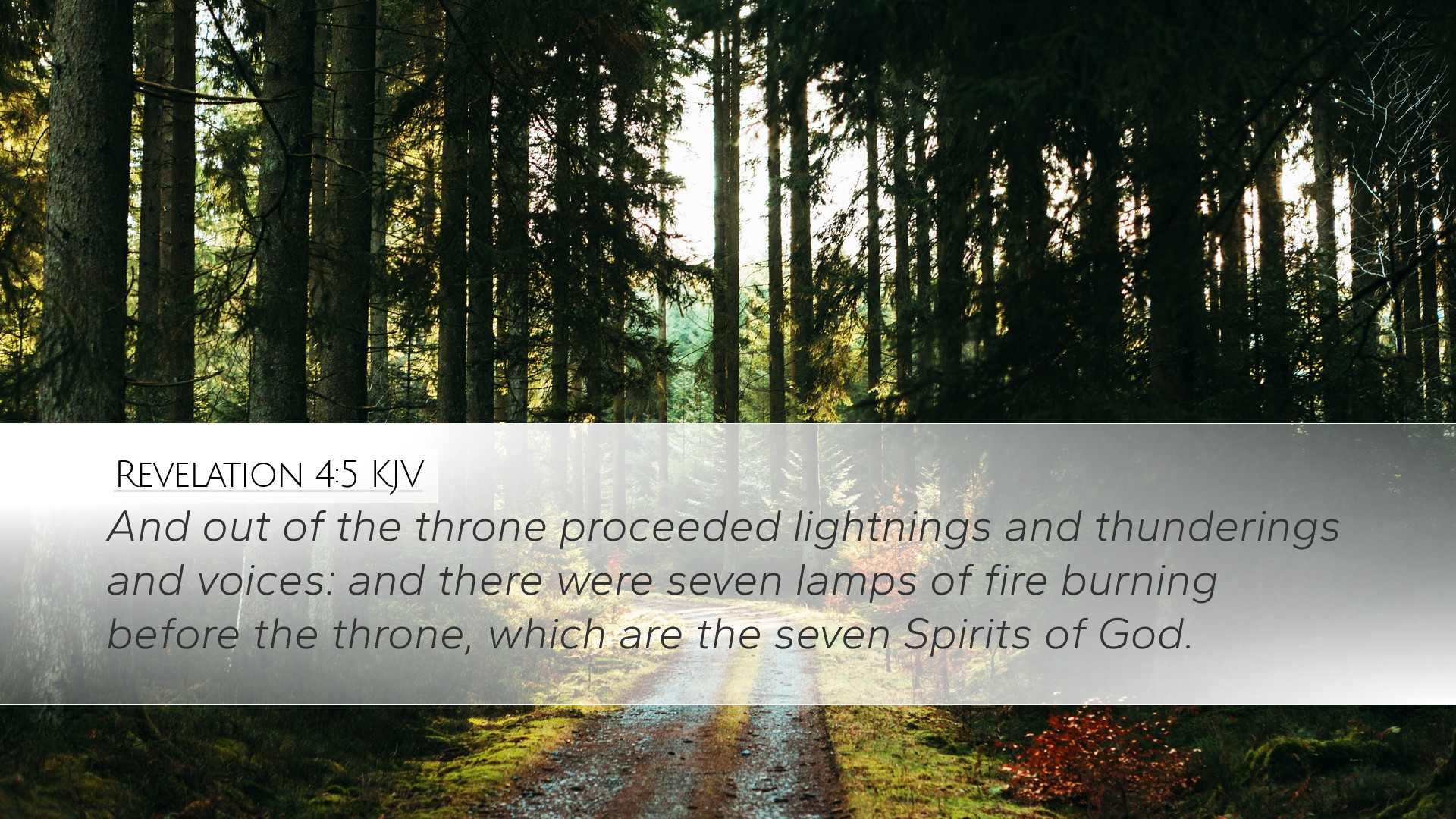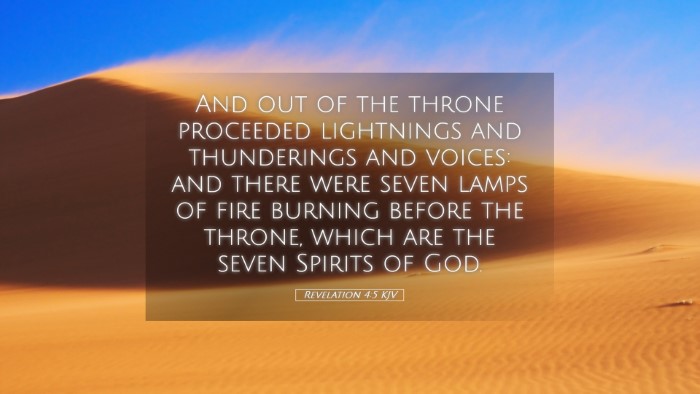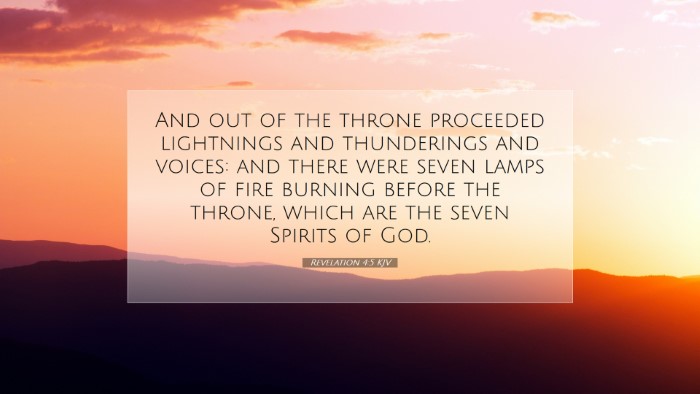Commentary on Revelation 4:5
Verse: "And out of the throne issued lightnings and thunderings and voices: and there were seven lamps of fire burning before the throne, which are the seven Spirits of God." (Revelation 4:5)
Introduction
The verse in question, Revelation 4:5, presents a vivid and powerful image that reflects the grandeur and holiness of God's presence. As we delve into the commentaries provided by notable theologians such as Matthew Henry, Albert Barnes, and Adam Clarke, we will explore the implications of this imagery and its significance in the context of the heavenly vision granted to John.
Contextual Analysis
In the broader context of the Book of Revelation, chapter 4 serves as an introduction to the visions that follow. It invites readers into the heavenly realm where God’s sovereignty is central. Various interpretations focus on the symbolism used in this verse that reveals theological insights about God's nature and His workings within creation.
The Throne of God
Henry emphasizes the centrality of the throne in God’s divine authority. The throne symbolizes not just power, but the rightful and just governance of all creation. It is from this throne that lightnings and thunderings emerge, indicative of God’s awesome power and majesty. Such manifestations convey the idea that God's presence can elicit reverence and should invoke both fear and awe among those who witness it.
The Phenomena: Lightnings, Thunderings, and Voices
Lightnings: In biblical literature, light often represents divine presence and judgment. Barnes points out that lightnings signify the righteousness and judgment of God, illuminating the truth and revealing the hidden aspects of the heart.
Thunderings: The thunderings are commonly understood as expressions of divine authority, echoing through the cosmos. Clarke highlights that thunder is an audible manifestation of God’s sovereignty, much like the natural world reflects His power through storm phenomena.
Voices: The voices represent proclamations or the heavenly court's decrees. The plural form suggests a multiplicity of divine expressions, which may symbolize the celestial beings surrounding the throne engaged in worship or declaring God's glory.
The Seven Lamps and the Seven Spirits of God
This verse continues with the description of seven lamps of fire before the throne. Each aspect of this imagery has profound implications:
- Seven Lamps: Seven is a number denoting completeness or perfection in biblical numerology. The lamps signify illumination, which might represent the purity and holiness of God. As per Henry’s insights, these lamps burn perpetually, symbolizing the eternal presence of God and His unending light.
- Burning Fire: The fire indicates purification. Barnes interprets it as a representation of the Holy Spirit's work in believers, consuming and refining them as gold is tested in fire.
- Seven Spirits of God: The mention of the seven Spirits refers to the fullness of the Holy Spirit. Clarke sheds light on this by indicating that this expression reminds believers of the Spirit's diverse workings and roles in the lives of God’s people. It emphasizes the Spirit's involvement in creation, revelation, and in the moral transformation of humanity.
Theological Implications
The theological implications of this verse extend beyond its immediate imagery. It encapsulates core aspects of God’s character:
- Transcendence and Immanence: God reigns supremely from His throne yet is active in the world through His Spirit. This juxtaposition invites believers to appreciate both God’s majesty and His closeness.
- Judgment and Grace: The light and sounds emerging from the throne can be seen as warnings of impending judgment, while the burning lamps reflect God’s grace through the Holy Spirit, inviting repentance and transformation.
- Worship and Reverence: The visuals of lightening, thunder, and the heavenly court invite a response of worship. The imagery encourages believers to approach God with awe, recognizing the sacredness of His presence.
Conclusion
Revelation 4:5 serves as a powerful reminder of God’s nature as supreme ruler and the dynamic presence of the Holy Spirit. The insights from Henry, Barnes, and Clarke enrich our understanding of this text, illuminating the complexities and depths of God's character and His relation to humanity. Pastors, theologians, and scholars can find in this verse not only a profound image of divine authority but also an invitation to encounter the living God through the Spirit, encouraging heartfelt worship and reverence.
In studying this verse, may readers be drawn deeper into the mystery of God's holiness, the transforming power of the Spirit, and the hope of His glorious kingdom that all creation awaits.


